The Nanny (1965)
Directed by: Seth Holt
Written by: Evelyn Piper, Jimmy Sangster
Starring: Bette Davis, Pamela Franklin, Wendy Craig, William Dix
AVAILABLE ON DVD
RUNNING TIME: 91 min
REVIEWED BY: Dr Lenera, Official HCF Critic
SPOILERS!
Nanny has been with the Fane family for many years. She cared for Virginia and her sister Penny, and then she looked after Virginia’s children Susy and Joey, though Susy is no longer alive, and Joey has spent two years in a school for disturbed and difficult children because he accidently drowned his sister in the bath. Now, he’s leaving the school and returning home, but remains paranoid and belligerent and not only hates Nanny to the point of not allowing her to touch anything that belongs to him, but says that it was Nanny who killed Susy. His mother is seriously depressed and his father is distant and constantly going away, but then Joey strikes up a friendship with 14 year old neighbour Bobby….
Far superior to Fanatic, Hammer’s first entry in the ‘psycho biddy’ sub genre inspired by Whatever Happened To Baby Jane?, The Nanny, a film which I recall being on TV quite often when I was younger but one I never caught up with until now, is a first class suspense thriller which exudes unease from every corner, while writer Jimmy Sangster avoids his usual temptation to pack in the twists and instead remains content to keep the viewer guessing until the final act [and I guessed plain wrong]. It’s quite slow, and mostly avoids gore and violence, but it’s extremely creepy in quite a unique and subtle way, and has such a genuinely disturbing feel to it that, while I was watching it [aside from saying to myself why had I not seen this fine movie before?], I kept on forgetting that I was watching a film from 1965, despite it being in black and white, because it was so convincing, and the performances, which really are terrific across the board, so realistic. Though I have two or three more of these Hammer psycho-thrillers to watch, to me The Nanny is hands down the very best of these movies and I doubt that the remaining entries will go anywhere near to topping it.
The first in a four film distribution deal with ABPC in the UK and 20th Century Fox in the US, The Nanny, based on the book of the same title by Evelyn Piper, was suggested by the chairman of Seven Arts [who were currently co-producing Hammer’s films] Kenneth Hyman, who had executive produced Whatever Happened To Baby Jane?. Screenwriter and co-producer Jimmy Sangster’s first choice for the lead role was Greer Garson, who first accepted, then declined. The involvement of Bette Davis depended on her approval of director Seth Holt, who found her “impossible” to work with despite the opening up of a local pub at 6.30 every morning so Davis could have her “kick start”: two large scotches. She would often be off with “the flu”, drank out of people’s glasses, coughed in people’s faces when she turned up ill, and constantly had problems with Holt’s direction, being scornful of him when he gave in to her and rubbishing his work when he didn’t. She did befriend co-star Jill Bennett, but still made her walk behind some times when they went out because she thought Jill was under-dressed. She also tried to seduce Sangster, though without success. The film was shot in Regent’s Park, a school in Radlett, Hertfordshire, and Elstree Studios. At the end of shooting, Davis said that it was the “happiest picture” of her career. The Nanny was a major money maker for Hammer on both sides of the Atlantic and got mostly good reviews too.
Our first sight is of kids playing in a playground, and then the Nanny [she’s not given a proper name] walking by to feed some ducks and buy some flowers as the titles come up. The music is perhaps inappropriately jaunty and even lush, but this is obviously deliberate. Nanny returns to the Fane household where, even before we see them, Virginia and Bill are totally at odds. They’re both supposed to go and pick up their disturbed son Joey who accidently killed his sister Susy from the special school he’s spent two years at, but Virginia, obviously a total emotional wreck, doesn’t want to go while Bill doesn’t seem to be at all sympathetic. Through certain lines of dialogue and body language, we economically get a sense of a marriage where the man totally lords it over the woman. Nanny eventually goes with Bill to get Joey, and it’s refreshing to have a scene where a doctor says that his mentally disturbed patient probably isn’t cured at all. Our first sight of Joey is him pretending to hang himself to scare his teacher. Disturbed or not, Joey is just plain arrogant and rude, his first action on coming home and seeing his new bedroom all done up for him being to pick up the bed sheets and take them into a different bedroom where he insists he sleeps instead. He’s really quite unsympathetic which helps give the proceedings an even more interesting dimension.
Of course, most of all, he’s terrified and hateful of Nanny, who is extremely patient with and polite to him. He won’t even eat any food she cooks. In fact, Nanny really seems genuinely nice and Joey so unpleasant. What with Virginia not ‘all there’ mentally and Bill rarely there physically, it really does virtually boil down to a strange variant on a cat and mouse game between boy and nanny, and the tension becomes almost unbearable – like a powder keg waiting to go off – whenever the two are in a room together, while the viewer’s sympathies keep on changing. Joey reveals a slightly nicer side [though he’s still rude to her most of the time and even drowns her doll] when he becomes friends with neighbour Bobby, while there are times where there seems to be an oddness to Nanny beneath the surface. Virginia is almost killed by poisoned food and Nanny’s bottle of ipecacuanha [why she would have this is anybody guess, and it would actually cause nausea rather than near death, but never mind] is found in Joey’s bed. You know that Virginia’s sister Penny is going to die at some point too because she has a weak heart [and you know how she’ll die too], and her eventual death is quite upsetting with the poor woman staggering about for ages. The climactic scenes manage to avoid the expected psycho-thriller type stuff and still work, partly because Nanny [as indeed it is her, and Joey was right all along] remains really quite sympathetic when her back story and reasons are revealed, and yet is also absolutely terrifying especially with those expressionless eyes Bette Davis has. This film apparently has scared many a child, and it’s easy to see why.
Having Joey seemingly totally fine in the final scene isn’t believable – yes, Nanny is gone, but there’s no way that he would emotionally heel that quickly – AND one of the two flashbacks to the death of Susy breaks the rule of point of view in an extremely clumsy fashion. The odd plot element isn’t entirely explained either, but then I wouldn’t be surprised if some things were meant to be ambiguous. One thing I felt especially interesting was how childlike Virginia was, Joey being much more mature than she was, but that’s the way Nanny always needed it, she needed Virginia to always need her. I reckon that this film will hold up extremely well with successive viewings because there are so many little elements which intrigue and which you can focus on. Nearly all of this takes place in one big house [the family sure seems to be well off], superbly lensed by Harry Waxman who allows us to see action taking place in two different rooms at times. Overall The Nanny is slightly less stylised than the same director’s Taste Of Fear, and this is as it should be considering the more realistic nature of this story, but there are some sudden use of close-ups [like when Penny is woken up by Joey who says Nanny tried to drown her and Joey seems quite frightening himself] which are highly effective.
For an actress famous for barnstorming, Davis is surprisingly restrained until towards the end and is more chilling as a result, though just her face alone is enough to have a strong effect as it seems to contain such pain and sadness and potential for evil. I think it might be the best performance I’ve ever seen her give. However, little William Dix almost matches her in a role which in a way is even harder, especially for a child. He’s especially good when showing fear and in his less intense scenes with Pamela Franklyn [good as always – now there was a terrific, unconventional actress who should have made it big but somehow never quite achieved that and then virtually gave up ] as Bobby. These moments bring some humour to the generally extremely intense proceedings, right from their first meeting where Bobby’s boyfriend turns up and Joey says that the reason he always bends down to do his shoe laces is so he can look up Bobby’s skirt. Richard Rodney Bennett’s score has its menacing and also its rather sad moments, but the majority of the film goes un-scored and is all the better for it. Perhaps too uncomfortable, with an effect that will certainly linger over me for some time, to be really entertaining in the way Hammer classics tend to be, The Nanny still remains a major work from the studio, if of a different kind to what we think of as the norm, and should even appeal to and satisfy those who tend to find Hammer’s films rather dated and silly.

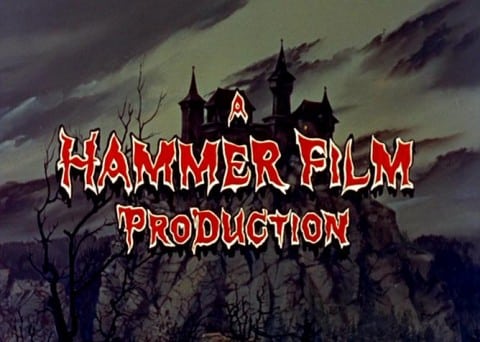
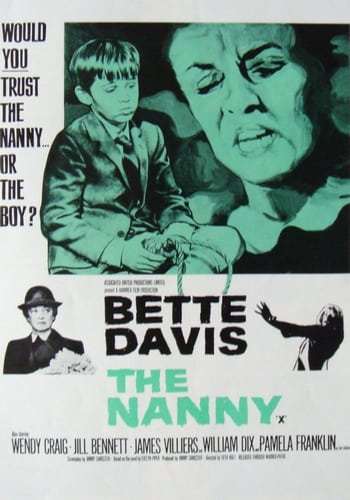
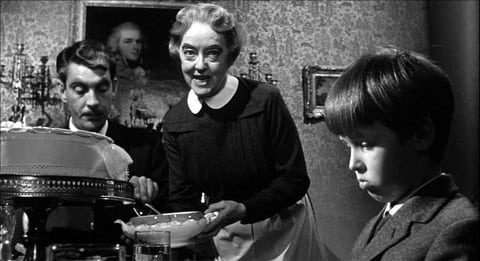
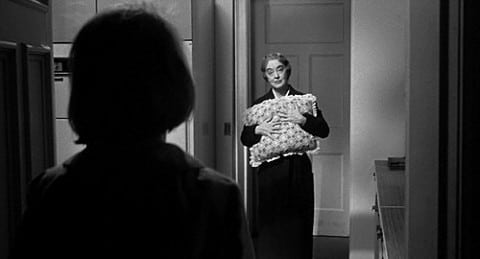




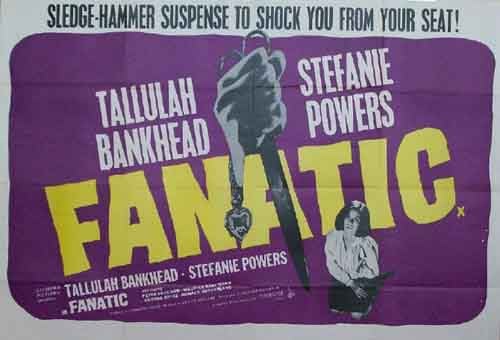
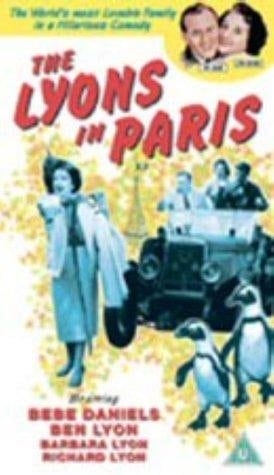
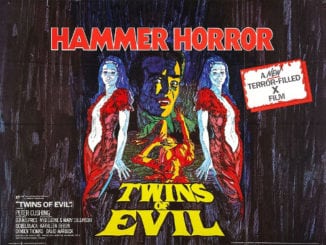
Be the first to comment